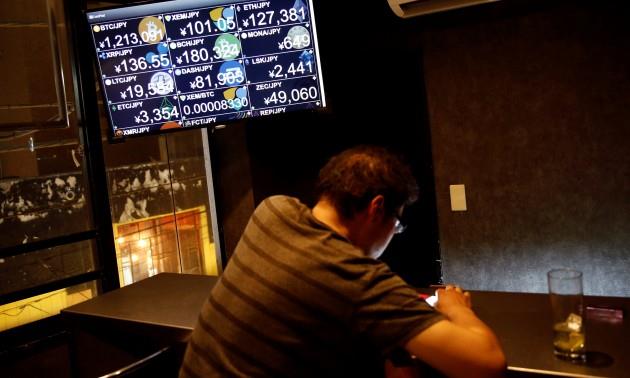
Regulators react to heist by squeezing out anonymous coins
The crypto industry in Japan is booming, with over 100 new exchanges and companies queuing up to gain government approval and official licensing. Part of this crypto confidence comes from Japan putting in place one of the world's most comprehensive regulatory frameworks.
That framework was strengthened recently when the Financial Services Agency (FSA) launched a new policy restricting anonymous crypto-currencies.
The daily<> Must-reads from across Asia - directly to your inboxEarlier this month the Nikkei Asian Review reported that the FSA regulation will impose restrictions on digital currencies that 'grant a high level of anonymity'. One of the first exchanges to adhere to the new rules was Monex-owned Coincheck, which was itself victim to one of the largest crypto heists in history.
Following the hack the FSA was forced to restructure its regulatory framework to provide more transparency in the crypto trading industry. A major part of that was the elimination of privacy-based anonymous coins from agency-approved exchanges.
Coincheck has since confirmed rumours that it would be delisting four major privacy-based crypto-currencies: Monero (XMR), Dash, Zcash (ZEC) and Augur's REP token. The coins will be removed from the exchange on June 18 and any assets remaining in users' wallets will be converted back into JPY at the market rate on the day.
The exchange has been gradually lifting trading suspensions on various coins in the wake of the heist in January, which saw over $530 million in Nem tokens stolen. It stands to reason that this particular exchange has come under heavy scrutiny from Japanese regulators . In a bid to entice traders back, the exchange has offered zero-fee trading since March.
Monero, or XMR, is widely known as the coin of choice for hackers and cyber-criminals and it is nearly always the crypto-currency that is mined by malicious software and browser hijackers. So for crypto regulations to be effective, Japan has seen the need to restrict trade in these coins.
However, Monero is not the only privacy-based blockchain. There are also Dash, Zcash, Zcoin, Pivx, Verge, Bitcoin Private and a growing number of others.
The US-based Gemini Exchange recently announced full support for Zcash, causing a 50% price surge in ZEC the following day. It seems that different countries have different priorities and approaches to crypto regulations. Most, however, realize that the need to enforce anti-money laundering protocols is top of the agenda.
Please contact us with feedback, news or stories:
<> <> <> <> Japan crypto-currencies Monero The Chain Coincheck Japanese Financial Services Agency crypto-currency regulation anonymous crypto coins Comments
Legal Disclaimer:
MENAFN provides the
information “as is” without warranty of any kind. We do not accept
any responsibility or liability for the accuracy, content, images,
videos, licenses, completeness, legality, or reliability of the information
contained in this article. If you have any complaints or copyright
issues related to this article, kindly contact the provider above.


















Comments
No comment